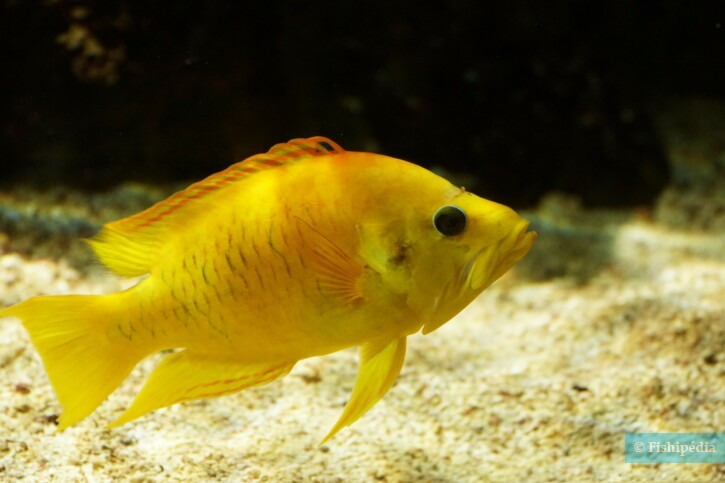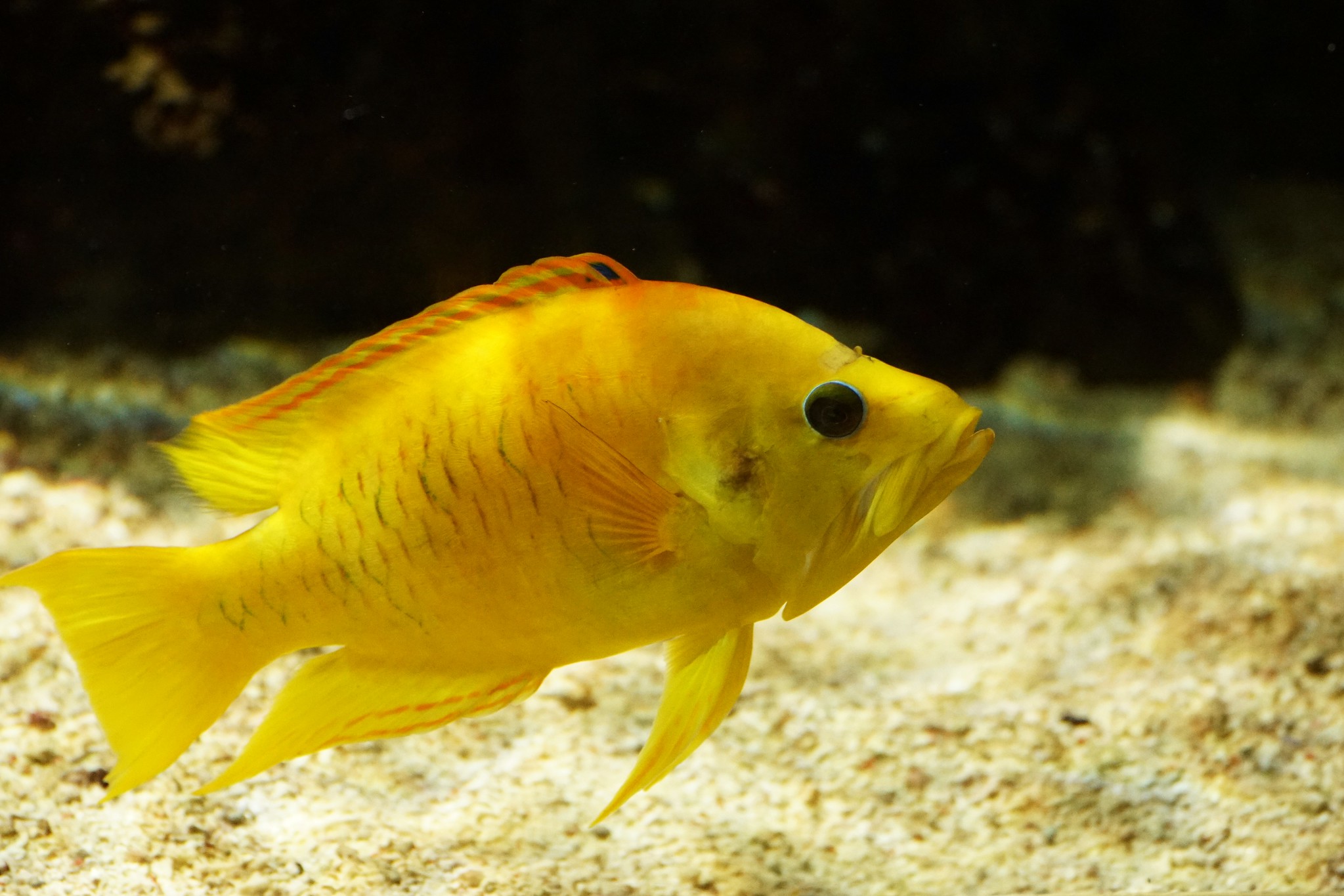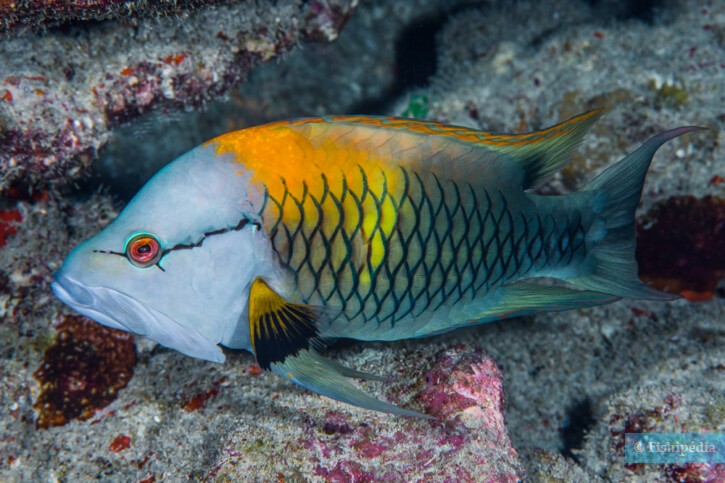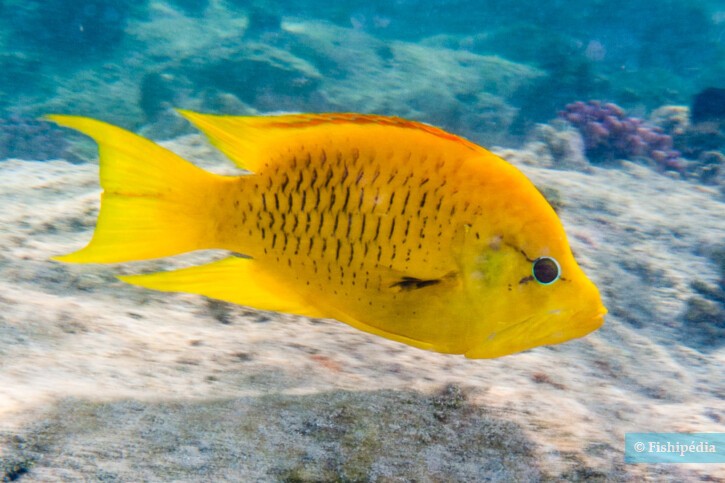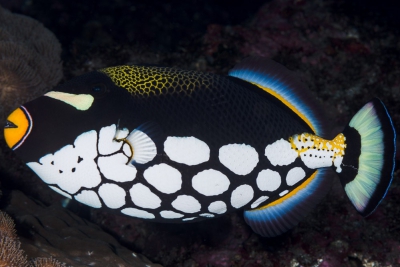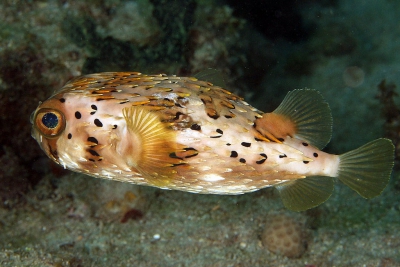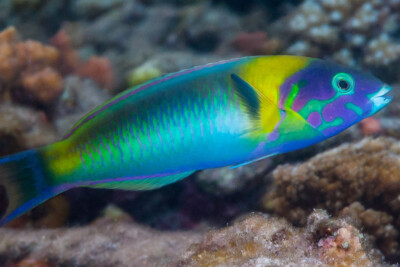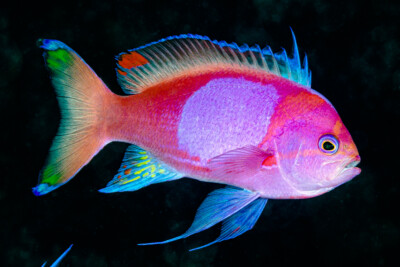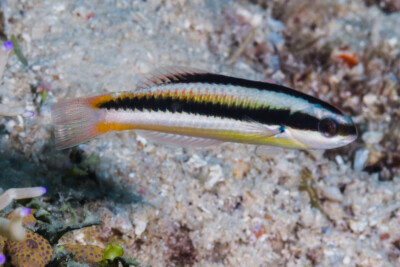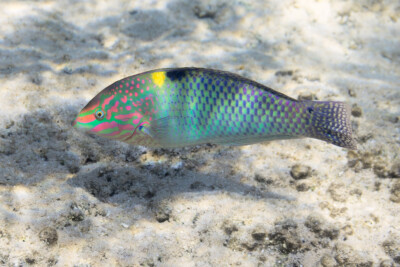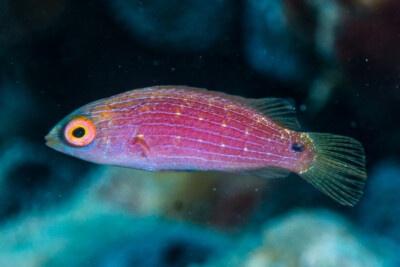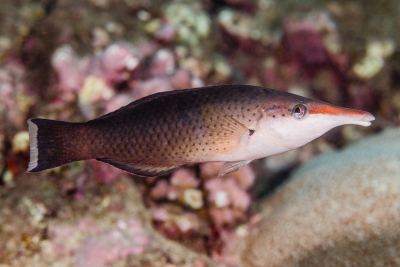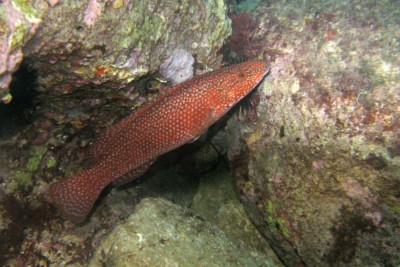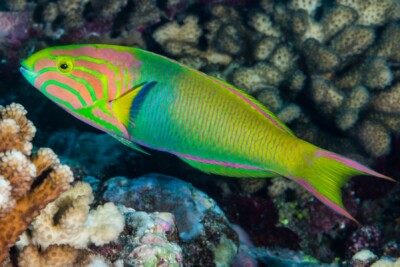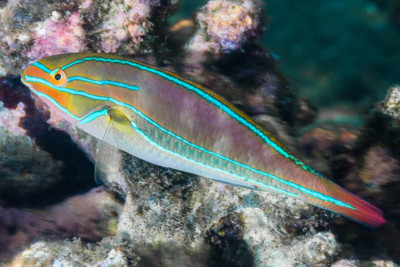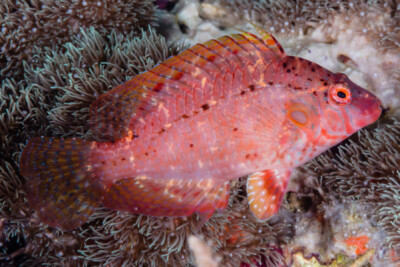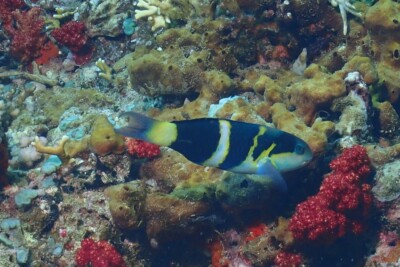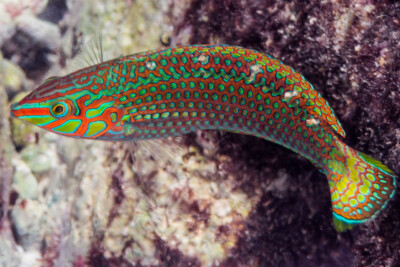Introduction
Epibulus insidiator, commonly known as sling-jaw wrasse, is a salt water fish.
This sheet is currently being prepared. The texts currently proposed come from our data model or are being drafted. To request priority for this content, you can write to us HERE.
Who is it?
Morphology
-
Average size45 cm
-
Maximum size54 cm
-
Average size45 cm
-
Maximum size54 cm
How to recognize This fish ?
The sling-jaw wrasse measures between 45 and 54 cm. This fish is unicolore with a predominantly jaune body.
Behaviour & Life cycle
-
dietcarnivorous
-
Sociabilitysolitary
-
territorialYes
-
Way of livingdiurnal
The sling-jaw wrasse is a fish solitary naturally found at mid-depth and near the bottom. This species is carnivorous .
The sling-jaw wrasse is a territorial animal that does not tolerate any incursions into its living area. It is particularly virulent against other territorial species and it can provoke heated fights. Relationships between conspecifics are also hectic, with each seeking to secure its place.
Reproduction
-
Reproductionovipare qui pond sur substrat découvert
The sling-jaw wrasse is a fish ovipare qui pond sur substrat découvert.
Harmless species
This species does not represent any particular threats to humans when encountered in its natural environment.
Origin and distribution

What is its habitat?
Natural environment characteristics
-
Temperature24 - 29 °C
-
Depth1 - 42 m
Biotope presentation
The sling-jaw wrasse is most often found at a depth between 1m and 42m. However, it is not impossible to find this species at other depths.
Species of the same biotope
To go further
Sources & Contributions
Participation & Validation
The Fishipedia team and specialist contributors are committed to providing high-quality content. However, although the information comes from scientific sources or testimonials from specialists, the cards may contain inaccuracies.

Benoit Chartrer

Pauline Gély

Adrien Falzon
Translation
Translation done with the valuable contribution of our translators, who make this information available to a wider audience. We sincerely thank them for their commitment.
Bibliographic references
- - GBIF
- - Feeding Mechanismof Epibulus insidiator (Labridae;Teleostei): Evolution of a Novel Functional System - MARK W. WESTNEAT - PETER C.WAINWRIGHT - Journal of morphology - 1889.
- - Courtship and Spawning of Nine Species of Wrasses (Labridae) from the Western Pacific - Terry J. Donaldson - Department of Fisheries, Faculty of Agriculture, Kyushu University - 1995.
Scientific partners
Tags
#Labridae
#Epibulus
#barrière de corail
#lagon
#tombant
#Bay of Bengal
#Persian Gulf
#Great Barrier Reef
#mer d'Oman
#East China Sea
#Philippine Sea
#Red Sea
#South East Asian Seas
#Indonesian seas
#East Indian Ocean
#western Indian Ocean
#Western Tropical Pacific Ocean
#Bali
#Mauritius
#Réunion
#Lombok
#New Caledonia
#Nusa Penida
#French Polynesia
Species of the same family
Species of the same biotope
